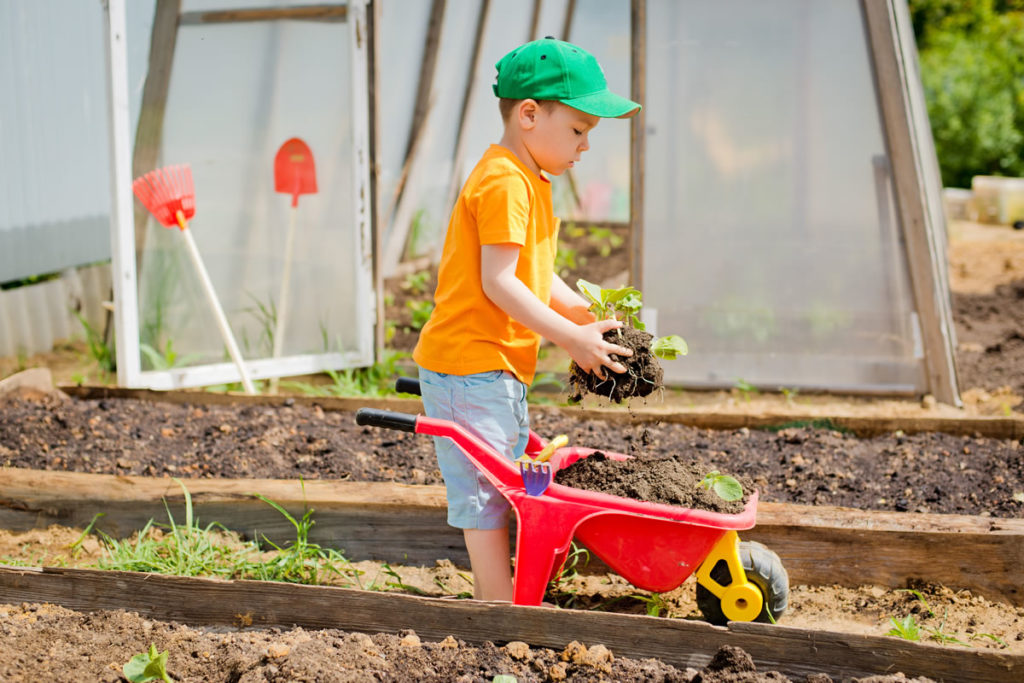When we want to work with very specific topics, those topics must be carefully matched with the specific abilities of the learner, or the children will have no chance of making positive and fruitful contacts with the project.
For this, a good alternative is that form of education in which students learn skills and content knowledge , in a context where said skills and content are really useful, or what is the same, the so-called learning projects. This context usually entails a complex problem or project with many levels of problems and integrated solutions in turn, for example planting and maintaining a garden. This type of task or project learning is rich and useful in many ways, and offers the possibility of reaching solutions through various channels and forms of representation.
And when tasks are rich, children of all abilities can make contact with them and learn in a way that fits their personal learning profile , which is very important. For example, a child with hearing problems in preschool will be able to count seeds and work equally in a kindergarten learning project much more than in a theory class, of course. That is why these types of tasks offer situations in which children, regardless of their language, gender, race, learning style or specific abilities, can get to know part of the world around them and learn from it.

However, not all topics are equally promising and powerful in terms of educational potential, and some may appear to offer more opportunities for children’s learning than others. Therefore, taking into account the enormous variety of possible subjects to study at school that exist, teachers must be very selective when choosing a specific subject.
The criteria used to discriminate between the different possible subjects of study in school depend on how children learn best, on the basic social values that we expect them to live and / or on what we understand by the role of the school in the education of children. children.
Below we show you a series of criteria that can be taken into account by teachers when choosing learning projects with an educational sense. The criteria are expressed in the form of questions, questions that will help us to see the true value of studying a certain topic.
How can the subject of study that interests me…?
- Contributing new learning to what children already know?
- Help children better understand the world in which they live?
- Help children better understand each other and themselves?
- Enable children to understand the value of learning in real life contexts?
- Offer children ideas for role-play games and skits?
- Encourage children to seek sources of information outside of school?
- Facilitate communication with parents?
Teachers may find it interesting to make a list to rate the above criteria that are most interesting to them. How will they contribute to student learning? These criteria should then be applied to the chosen topics through a criteria checklist.
Criteria checklist for teachers and professors
Some criteria for choosing a good learning project topic are:
- How interesting is the topic for children?
- Is it a real world issue?
- Do the students already have personal experience with the subject?
- Will it be easy for them to do practices related to the chosen topic?
- Will they be able to access suitable information sources on their own?
- Can someone come and share their first-hand experience with the subject?
- Are there many different questions that the children will want to ask about the topic?
- Will children have the opportunity and ability to actively investigate and ask their own questions?
- What experience can the parents of the students bring to the project?
This list is used to ensure that the topic chosen finally attracts and maintains the interest of children for a considerable period of time. A fundamental principle so that the interest of children can be developed and maintained more easily, is that in these subjects direct connections can be established with people or places that are known to them, such as inviting parents and families when they are professions work.

Project work and systematic instruction can be seen as supplemental learning opportunities , but children need to know not only how to use a skill, but also when to use it. They must learn to recognize for themselves the contexts in which the skill might be useful and the purposes it can most appropriately serve.
That is why it is so important that when a teacher instructs a child at a new skill level, the learning tasks are carefully tailored to the child’s specific abilities. When a child is applying skills in which they are already fluent, they can work independently, with more confidence, make decisions, formulate and solve problems as they arise, be creative in applying the skills appropriately … values that will determine, without a doubt, the success of the project.











































































































